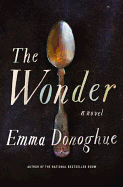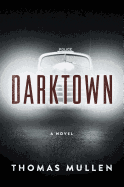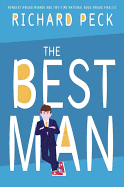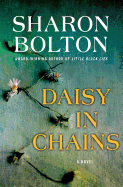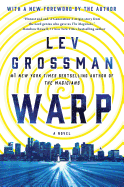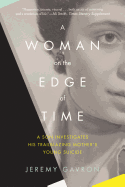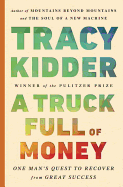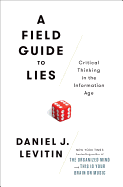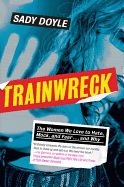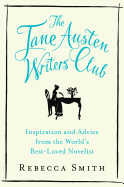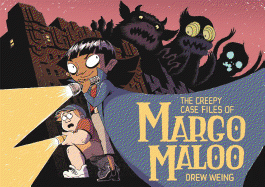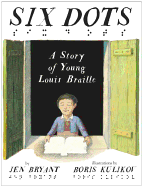Friday, September 23, 2016
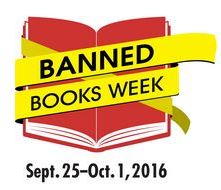
The American Library Association will again run the Banned Books Virtual Read-Out--readers can create videos celebrating the freedom to read that will posted on a dedicated YouTube channel. The ALA will also host a webinar on September 29 featuring authors Jessica Herthel (I Am Jazz), Christine Baldacchino (Morris Micklewhite and the Tangerine Dress) and Wendy Doniger (The Hindus), who will discuss their experiences with censorship. Also on the ALA website is the 2015 most-challenged book list, topped by John Green's Looking for Alaska.
The emphasis this year is on diversity--books that are frequently challenged are about people who are LGBTQIA, people of color and people with disabilities, about gender diversity and ethnic, cultural and religious minorities--"people or issues that, perhaps, that challengers would prefer not to consider," as Banned Books Week puts it. (For a list of some of these titles, click here.)
The Association of American Publishers cited statistics from the University of Wisconsin's Cooperative Children's Book Center and publisher Lee & Low from 1994 to 2012 that show that while 37% of the U.S. population are people of color, only 10% of books published focus on multicultural content. In addition, ALA's Office for Intellectual Freedom has determined that 52% of the books challenged or banned over the past decade are titles that are considered diverse content. As the AAP notes, "These statistics are troubling and create more questions than answers."
The Wonder
by Emma Donoghue
With The Wonder, Emma Donoghue (Room) once again brings her sense of suspense and curiosity to historical fiction. As she did in Frog Music, Donoghue has taken inspiration from true historical mysteries to form the backbone of her imaginative novel. In this case, that inspiration comes from the stories of the "Fasting Girls," young women around the world between the 16th and 20th centuries who claimed to live without food.
In The Wonder, the fasting girl is 11-year-old Anna O'Donnell, whose family claims she has lived without a bite to eat for more than four months. Hoping to prove the truthfulness of these claims, a committee of town leaders brings in two nurses to watch Anna day and night and confirm that she eats nothing during that time. But as the watch continues, Anna begins to weaken, making Nightingale-trained nurse Lib Wright question the morality of her task.
Donoghue has gone to great lengths to make The Wonder feel in and of its time and place, a small Irish village in the mid-19th century. As Lib tends to her charge, readers learn of Florence Nightingale and the Crimean War; the Irish Potato Famine; political tensions between England and Ireland; photography techniques of the time; and religious rituals of 19th-century Irish peoples--to name just some of the historical details included. This rich sense of history combines with Donoghue's expertly imagined story of a fasting girl to deliver a quietly suspenseful novel that explores questions of faith and love--and the lengths to which one might go to prove either, or both. --Kerry McHugh, blogger at Entomology of a Bookworm
Discover: The author of Room builds a historical novel of psychological suspense based on true stories of "Fasting Girls" throughout history.
Mystery & Thriller
Darktown
by Thomas Mullen
In this riveting historical police procedural, Thomas Mullen (The Revisionists) constructs a story of the first black officers on the Atlanta, Ga., police force. Blending careful research with an acute sense of time and place, then adding bold characters, Mullen succeeds in delivering a narrative heartbreakingly irresistible.
Partners Lucius Boggs and Tommy Smith are two of the eight black officers. They're walking the Sweet Auburn, aka Darktown, beat when a car hits a lamppost. Forced to follow on foot because they aren't permitted squad cars, the pair manage to stop the white driver and observe a black woman riding with him. Since the black cops are also prohibited from arresting white suspects, Boggs and Smith have to call in white officers. The issue is now out of their hands. But the next time they see the female passenger, she's dead, piled with trash in a vacant lot.
Feeling a sense of responsibility and knowing the white detectives won't make any effort to find her killer, Boggs and Smith unofficially investigate the case, putting themselves in professional and mortal danger.
Mullen's realistic portrayal of racism in Darktown makes it emotionally painful, yet at the same time his astounding delivery is powerfully magnetic. While the hate, injustice and violence drill through the reader's heart, the struggles, determination and internal conflict of his protagonists, as well as the deftly plotted mystery, keep the audience rapt. Steeped in timeless issues and storytelling that may make readers forget they're embroiled in fiction, Darktown is remarkable. --Jen Forbus of Jen's Book Thoughts
Discover: In 1948, when a black woman, last seen with a white man, is brutally murdered, the first black police officers in Atlanta vow to find her killer.
Daisy in Chains
by Sharon Bolton
Hamish Wolfe, a convicted serial killer of women, has never stopped proclaiming his innocence, even from prison years after his conviction. Because of his charisma and good looks, many female admirers believe his assertions.
The only woman Wolfe wants in his corner, though, is defense attorney Maggie Rose, famed for getting convictions overturned, including for people whose guilt is almost certain. Maggie doesn't take on an appeal unless she thinks she can succeed, and at first rebuffs Wolfe's letters imploring her to be his lawyer. After she pays him a visit, she's still not sure she can trust him. Wolfe's entreaties don't let up, however, and Maggie finds him harder and harder to resist despite her misgivings. What if this case turns out to be her last? Succumbing to Wolf could be dangerous, and she may well risk losing not only an appeal but her life.
Sharon Bolton (Little Black Lies) is the queen of creating an unsettling atmosphere around strong female protagonists whose prickly nonconformist attitudes make them riveting. Maggie, like the lead character in Bolton's Lacey Flint series, doesn't care what people think of her and does everything on her terms; she even sports bright blue hair. The mystery is intriguing and includes thought-provoking social discourse--in the form of blog posts and media reports--on misogyny and how political correctness doesn't cover public fat-shaming (Wolfe's alleged victims are plus-size). Astute readers will probably guess what the major revelations are before they're disclosed, but Bolton doesn't need to shock in order to hold readers captive until the last page. --Elyse Dinh-McCrillis, blogger at Pop Culture Nerd
Discover: A defense attorney must decide whether or not to handle the appeal of a convicted but beguiling serial killer who insists he's innocent.
Science Fiction & Fantasy
Warp
by Lev Grossman
Best known for his Magicians fantasy series, Lev Grossman began his literary career writing about the real world in Warp, his first novel, published in 1997. Now reissued, it's short and fueled by personal and professional post-college stagnation. It doesn't tell a story so much as drop into a couple days in the lives of Boston 20-somethings trying to figure out what's next. It ends without them having come to an answer, but it's an apt portrayal of that stage of life.
After graduating from Harvard, Hollis Kessler is quickly eating through his meager savings and working random temp jobs. He doesn't really want a career, but accepts that he's going to have to join the professional class soon. That tension underlies most of his interactions with the friends who flit in and out of his life: everyone knows what's expected of them now that they've become adults, but no one seems that interested in meeting those expectations.
There's a story about an attempt to crash in someone's house over a weekend, and a girl named Xanthe keeps appearing in Hollis's life without rhyme or reason, but these are more diversions than real plots. The girl and the "house sitting" are opportunities to explore Hollis's apathy and borderline depression, using the unusual to point out how normal his feelings toward maturity are. In the introduction to this reprint, Grossman says he hoped to capture the feeling of listlessness many people have in their 20s. He certainly did. --Noah Cruickshank, marketing and development manager, Open Books, Chicago, Ill.
Discover: Lev Grossman's debut novel is a tour through the life of a young man trying hard not to grow up.
Biography & Memoir
A Woman on the Edge of Time: A Son Investigates His Trailblazing Mother's Young Suicide
by Jeremy Gavron
Jeremy Gavron grew up with the faintest of impressions of his mother, who died when he was four years old, in 1965. He didn't know that her death was a suicide until he was 16, and only decades later did he embark upon an exploration of her life and reasons for ending it. A Woman on the Edge of Time is a record of his examination and tentative conclusions.
Gavron's mother, Hannah, is a tantalizing character. A talented, magnetic youth, she excelled in acting, equestrian sports and poetry; had an affair with the headmaster of her boarding school; married at 18; earned a doctorate in sociology while raising two young sons; and wrote a feminist text that would be published shortly after her death. In an echo of Sylvia Plath's suicide two years earlier, she gassed herself in a flat just one street over from Plath's. And, like Ted Hughes, Gavron's father all but erased her presence from the lives of her two children.
In chasing this shadowy figure, Gavron corresponds and visits with Hannah's friends, colleagues and family, and studies letters, diaries and photographs left behind. Along the way, the reader is exposed to English cultural history, particularly in Gavron's investigations of Hannah's book The Captive Wife, a qualitative study of young homebound mothers. As he concludes, there can be no thorough comprehension of a suicide or of a mother he doesn't remember. A Woman on the Edge of Time ends with Gavron's attempted "narrative verdict," which though incomplete does offer him some closure. --Julia Jenkins, librarian and blogger at pagesofjulia
Discover: The legacy of a mother and her suicide reveals the story of both a woman and a social movement.
A Truck Full of Money
by Tracy Kidder
A Truck Full of Money is Pulitzer Prize-winner Tracy Kidder's illuminating profile of Internet entrepreneur and philanthropist Paul English. English rose from a working-class family in Boston's West Roxbury neighborhood to create the travel website Kayak.com, a company he sold to Priceline in 2013 for $1.8 billion, netting some $120 million in the process. As Kidder describes it, that road was anything but smooth. He traces English's business successes and occasional setbacks, as well as his struggles with bipolar disorder that at times brought on a depression so deep that some nights he could only crawl across the floor.
What distinguishes English from an ordinary software plutocrat is his commitment to doing something other than indulging himself or deploying his substantial resources solely to make more money. And during an evening Kidder spends with English among Boston's homeless, the brilliant, ceaselessly creative software engineer discovers that some intractable problems can't be solved by creating a new app.
Along with writers like John McPhee and Gay Talese, Kidder is among the contemporary masters of narrative nonfiction. His is an understated, unobtrusive style, not one that injects him into the narrative. His portrait of English is clearly admiring, but honest, consistent with what he says was his subject's desire for a "promise not to make me look better than I am." When it comes to Paul English's fascinating story, Tracy Kidder leaves us wondering with great anticipation: "What's next?" --Harvey Freedenberg, attorney and freelance reviewer
Discover: Pulitzer Prize-winner Tracy Kidder offers an illuminating portrait of Internet entrepreneur Paul English.
Good Vibrations: My Life as a Beach Boy
by Mike Love and James S. Hirsch
As a co-founding member of the Beach Boys in the 1960s, Mike Love offers readers an insider's look at the magic and mania of being a vital part of that volatile, iconic and enduring musical group with Good Vibrations. In 1962, Love, his teenage cousins Brian, Carl and Dennis Wilson, and high school pal Al Jardine went from recording a two-song demo to signing with Capitol Records. Their intoxicating sound mixed driving surf music and angelic harmonies. Capitol pushed out 10 albums during the group's first four years. While Brian Wilson composed the music, Love penned the lyrics to classic songs like "California Girls," "Help Me, Rhonda," "I Get Around" and "Good Vibrations."
The Beach Boys began to fracture as the group's carefree sound began to play at odds to the turbulent mid-'60s landscape of protests, war and assassinations. Mental illness, alcoholism and an abundance of drugs fueled the group's decline. Over the decades, members quit, were fired, filed lawsuits and often returned, while still managing to tour and produce albums for six decades.
Good Vibrations is a gripping, clear-eyed saga of success, ego, debauchery and murder (Dennis Wilson fell under the spell of Charles Manson, and housed him and his followers and even recorded one of his songs). Love and co-writer James S. Hirsch skillfully surf the perilous waters of the troubled band's history with candor and perspective. Love's devotion to making music is unmistakable throughout, as is his loyalty to his troubled bandmates, whom he refuses to cast as simply heroes or villains. --Kevin Howell, independent reviewer and marketing consultant
Discover: Good Vibrations offers a clear-eyed and riveting backstage pass to the triumphs, tragedies and turmoil of the Beach Boys.
Current Events & Issues
A Field Guide to Lies: Critical Thinking in the Information Age
by Daniel J. Levitin
Many people would like to think they can trust certain publications, news sources and authorities, that they can believe the statistics and the arguments without having to dig any deeper. It's easy, it's comfortable, but it can lead to believing outright lies, voting against one's interests, damaging one's health and ruining one's finances.
Daniel J. Levitin (The Organized Mind) is a neuroscientist, musician, record producer and bestselling author. In his smart and humorous A Field Guide to Lies, he explains how readers can use common sense and a variety of simple analytical tools to locate the right information needed to make important decisions.
Levitin suggests starting by looking for three kinds of errors: "how the numbers were collected, how they were interpreted, and how they were presented graphically." How plausible are the claims? Does the pie chart add up to 193%? "Infographics are often used by lying weasels to shape public opinion, and they rely on the fact that most people won't study what they've done too carefully." He explains how to identify trustworthy experts and sources; determine averages, probability and risk; how to interpolate and extrapolate; and how to wade through the difficulties of collecting data fairly and presenting it honestly.
A Field Guide to Lies is a densely packed, well-organized book that may be read and used as a reference by general readers, students and anyone who collects and interprets data. Levitin offers the necessary tools for maintaining a well-informed and open mind. --Sara Catterall
Discover: The tools anyone needs to tell good information from bad are in this definitive guide to critical thinking.
Social Science
Trainwreck: The Women We Love to Hate, Fear, Mock... and Why
by Sady Doyle
Tiger Beatdown blogger Sady Doyle's Trainwreck takes a close look at the women whose lives have been derailed to the shock and delight of the watching public. Beginning with Mary Wollstonecraft--known today as the author of the groundbreaking A Vindication of the Rights of Woman but recognized in her own time mostly as the suicidal mother of an illegitimate child--and working through history up to the much more recent rise (and subsequent fall) of Britney Spears, Doyle delivers an exploration of "the women we love to hate, mock, fear... and why."
Trainwreck covers the narratives of woman who are defined by "their sins and errors: Insensitive, provocative, promiscuous, off-the-wagon, crazy." Wollstonecraft and Spears sit side by side with Amy Winehouse and Sylvia Plath, Miley Cyrus and Marilyn Monroe, Paris Hilton and Princess Di, Charlotte Brontë and Billie Holliday. Unlike the stories that have followed these women throughout history, Doyle recounts their tales not to reveal, shame or judge, but to understand why we have done so. By examining the sins, options and roles, Doyle comes to posit that the trainwreck, ultimately, acts as a social symbol: she is what happens when women are too visible, too loud, too stubborn to adhere to the female virtues of the day.
Trainwreck is part history, part analysis and part encouragement; Doyle urges readers to make the future better than the past has been. "We can drown in it, the judgment and hatred we have for each other. We can tank women's lives, hold them under until they shut up or stop breathing. Or we can let it wash away." --Kerry McHugh, blogger at Entomology of a Bookworm
Discover: A comprehensive history of the role of the trainwreck woman throughout history, and how she came to be.
Reference & Writing
The Jane Austen Writers' Club: Inspiration and Advice from the World's Best-Loved Novelist
by Rebecca Smith
Readers admire the work of Jane Austen for many reasons. Some are drawn to her unforgettable characters and her mastery of wit, language and dialogue. Others seek out her keen observations, including her grasp of relationships, the resonance of her themes and the various twists and turns of her plots. Many "Janeites" who are also writers turn to Austen to learn craft. In The Jane Austen Writers' Club, Rebecca Smith--the "five-times-great-niece" of Jane Austen, as well as a novelist and a former writer-in-residence at the Jane Austen House Museum--dissects the work of her beloved aunt in order to inspire writers and teach them what makes Austen's work so universally appealing.
Smith (Jane Austen's Guide to Modern Life's Dilemmas) explores, in depth, techniques and devices found in Austen's fiction, pairing them with letters of advice Austen wrote to nieces and nephews bitten by the writing bug, as well as correspondence she wrote to others. Topics include setting, point-of-view and building suspense, along with overcoming discouragement and maintaining discipline. By outlining these facets--and highlighting excerpts and examples of Austen's own words, with spin-off writing exercises--Smith demonstrates how and why the Pride and Prejudice author chose to fashion her timeless stories in the manner she did. This method of deconstruction is a great teaching tool, providing intimate insights into Austen's life and work, which will hold great appeal to writers seeking to dig deeper and improve their own craft. --Kathleen Gerard, blogger at Reading Between the Lines
Discover: A distant niece of Jane Austen examines her aunt's work and letters in order to inspire writers in their own creative lives.
Children's & Young Adult
The Creepy Case Files of Margo Maloo
by Drew Weing
Charles Thompson is not as excited as his parents are to move into a graffiti-slathered, dilapidated former hotel in Echo City. As he unpacks his collectible warrior beanbag animals in his cell-like top-floor room, his dad says, "Minimalism, Charles. We are not what we own." "Hands off my stuff!" his son retorts. It's not just the witty dialogue that distinguishes The Creepy Case Files of Margo Maloo, it's the delicious, expertly paced suspense-building, starting with the giant yellow eyeball peering out from Charles's closet his first night in the room.
Charles knows instinctively that no adults will ever acknowledge the fanged truth of his closet monster. Fortunately, a neighborhood kid gives him the business card of "Margo Maloo, Monster Mediator." Charles calls her, and one hour later, the oddly vampiric, brown-skinned girl creeps into his window. Charles and Margo descend through an old access panel in the closet into a long-neglected hotel kitchen and follow a path of bones (probably fried chicken) that leads straight to the yellow-eyed troll's lair. Thus begins the meat of the adventure in this tremendously funny and superbly illustrated graphic novel by Drew Weing (illustrator of Eleanor Davis's Flop to the Top).
Margo Maloo acts as a go-between for monsters and children, trying to foster good will and cultural understanding for everyone's safety. Before long, Charles--blogger and wannabe journalist--starts tagging along with her on missing-kid cases and missing-ogre-baby cases alike. For readers as curious as Charles, there's a mini-encyclopedia of monsters and the like with pencil sketches and astute observations like "Goblins are very bureaucracy-minded." Scoop this one up. --Karin Snelson, children's & YA editor, Shelf Awareness
Discover: In Drew Weing's hilarious graphic novel, Charles moves with his parents to a haunted hotel in the big city and ends up in cahoots with the inimitable monster mediator Margo Maloo.
The Best Man
by Richard Peck
Newbery Medalist Richard Peck (A Year Down Yonder) says he wanted to bring the news of same-sex marriage to middle-grade readers, because "the standardized test and textbook haven't caught up," but if this were his goal for The Best Man, one would hardly know it because he takes his sweet time (and it is sweet time) getting there. Peck's wandering, anecdote-rich narrative is set in Chicago, and told in the dryly funny voice of an immensely likable, if slightly oblivious boy named Archer Magill.
This story (which Archer calls a "Tale of Two Weddings") opens with a "train wreck" of a wedding in which six-year-old Archer's tight velvet shorts split open as he's hiding under his grandparents' porch, trying to dodge his duties as ring bearer: "Boys aren't too interested in weddings," he explains. Time jumps forward to Archer in the fifth grade, and his four man-heroes are gradually introduced: his grandfather, his dad, his Uncle Paul and Westside Elementary's first male teacher, Mr. McLeod, "a blue-eyed National Guardsman." As Archer's childhood friend Lynette Stanley points out, "you really have to spell things out" for Archer, so he doesn't catch on that two of these men are gay. Once he knows, the boy wonders if he might be gay, too. Archer asks, "Uncle Paul, do you think I might be gay?" " 'I don't know,' he said. 'Do you moisturize?' "
As promised, The Best Man closes with a second porch wedding, this time between Uncle Paul and Mr. McLeod. Love abounds in this modern-day delight with a satisfyingly old-fashioned feel. --Karin Snelson, children's & YA editor, Shelf Awareness
Discover: In Newbery Medalist Richard Peck's wise and wonderful middle-grade novel, fifth-grader Archer Magill has four male role models and discovers that two of them are gay.
Six Dots: A Story of Young Louis Braille
by Jen Bryant, illus. by Boris Kulikov
The revolutionary invention of the Braille alphabet brought the joy, knowledge and power of literacy to blind people everywhere. A clever, highly motivated blind boy named Louis Braille developed this "six-dot," domino-based lettering system in the 1800s at Paris's Royal Institute for Blind Youth by simplifying a military code.
In this vivacious picture-book biography by Jen Bryant (author of A River of Words: The Story of William Carlos Williams and The Right Word: Roget and His Thesaurus), readers will be floored by the sheer tenacity of Louis Braille, who was blinded when he was five years old in Coupvray, France. Louis's father, a leatherworker, was always telling his son not to touch his sharp tools ("N'y touche pas!") but the awl proved irresistible and, tragically, it slipped. When the world went dark for Louis, he felt held back from life like a tightly chained dog. This frightening, suddenly dangerous world is expressively illustrated in inky blackboard spreads with whisper-like chalk outlines of people and places once familiar to Louis. With depth and warmth, Boris Kulikov (illustrator of Papa's Mechanical Fish and of Kate Banks's Max books) expertly captures the boy's emotional journey, the small-town French 19th-century community that rallies around him and the evolution of Braille itself.
While there are no actual Braille bumps in Six Dots, the full alphabet is represented, and a question-and-answer section about Braille then and now is as fascinating as the illustrated story. Louis Braille's fire within blazed a trail for millions, and Bryant and Kulikov fan the flames of this inspiring story with skill, style and heart. --Karin Snelson, children's & YA editor, Shelf Awareness
Discover: Jen Bryant and Boris Kulikov's stellar picture-book biography tells the riveting tale of how the Braille alphabet was developed by a blind French boy in the 1800s.
| Advertisement Meet belle bear! |


